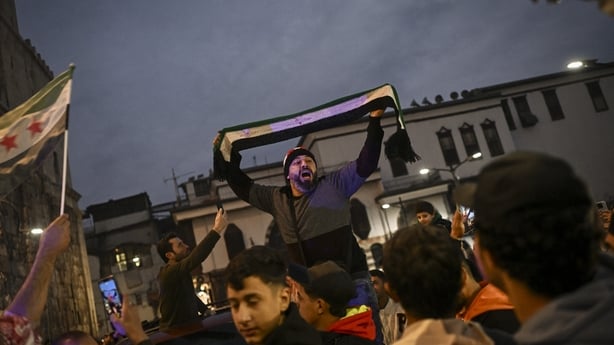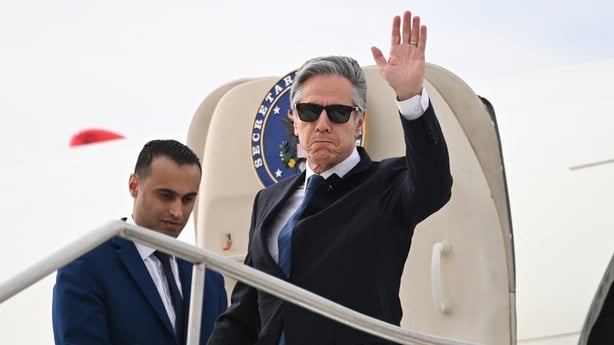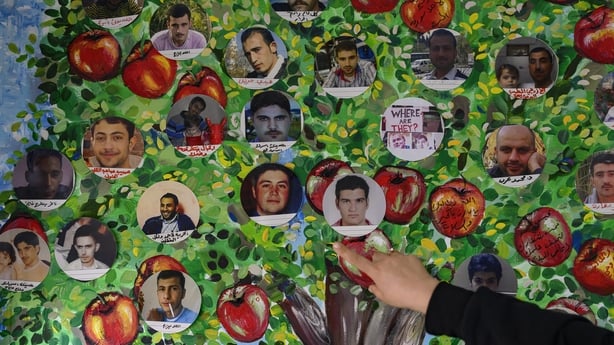United Nations Secretary General Antonio Guterres is "deeply concerned" over "extensive violations" of Syrian sovereignty, and by Israeli strikes on the country, his spokesman has said.
Mr Guterres "is deeply concerned by the recent and extensive violations of Syria's sovereignty and territorial integrity. The Secretary-General is particularly concerned over the hundreds of Israeli airstrikes on several locations in Syria," according to a statement from Stephane Dujarric.
He stressed "the urgent need to de-escalate violence on all fronts, throughout Syria," following hundreds of Israeli strikes against Syrian military assets in the past days.
Israel claims to have targeted everything from chemical weapons stores to air defenses to keep them out of rebel hands.
Since president Basher Al-Assad's removal from power, Israel, which borders Syria, has sent troops into a buffer zone on the east of the Israeli-annexed Golan Heights, in a move the UN has said violates a 1974 armistice.
Mr Guterres urges "the parties to the Agreement to uphold their obligations under this instrument, including by ending all unauthorized presence in the area of separation and refraining from any action that would undermine the ceasefire and stability in Golan," Mr Dujarric said.

Meanwhile, Syria's interim government has vowed to institute the "rule of law" after years of abuses under Mr Assad, as the United States warned against any action that risked triggering further conflict.
He fled the country after a lightning offensive spearheaded by the rebel group Hayat Tahrir al-Sham (HTS) and its allies, which brought a sudden end to five decades of iron-fisted rule by his family.
Syrians across the country and around the world erupted in celebration after enduring an era during which suspected dissidents were jailed or killed, and nearly 14 years of war that killed 500,000 people and displaced millions.
The new government's spokesman said that the country's constitution and parliament would be suspended for the duration of a three-month transition.
"A judicial and human rights committee will be established to examine the constitution and then introduce amendments," Obaida Arnaout said.
Speaking at the state television headquarters, seized by the new rebel authorities, Mr Arnaout said the government would institute the "rule of law".
"All those who committed crimes against the Syrian people will be judged in accordance with the law," he added.
Asked about religious and personal freedoms, Mr Aranout said: "We respect religious and cultural diversity in Syria".

US Secretary of State Antony Blinken, who is in Jordan, said it is "really important at this time that we all try to make sure that we're not sparking any additional conflicts".
He made the comments after mentioning recent Israeli and Turkish military activity on Syrian soil.
The US hopes to ensure that Syria is not "used as a base for terrorism" and does not pose "a threat to its neighbours", Mr Blinken added.
This has been a key concern both for Turkey, which resents the US military alliance with Syrian Kurds, and Israel, which has been pounding sites across its historic adversary since the fall of the Assad regime.
We need your consent to load this rte-player contentWe use rte-player to manage extra content that can set cookies on your device and collect data about your activity. Please review their details and accept them to load the content.Manage Preferences
The Syrian Observatory for Human Rights war monitoring group reported Israeli strikes near Damascus, where loud explosions were heard.
Mr Blinken said the Israeli air strikes aim "to try to make sure that the military equipment that's been abandoned by the Syrian army doesn't fall into the wrong hands".
He also said the US is "working to bring home" American Travis Timmerman, after Syria announced that he had been released.
The Syrian leadership said it is ready to cooperate with Washington to look for US citizens who disappeared under Mr Assad, including on an "ongoing" search for journalist Austin Tice, who was abducted in 2012.
G7 ready to support 'inclusive' transition
Leaders of the Group of Seven powers said they are ready to support the transition to an "inclusive and non-sectarian" government in Syria.
They called for the protection of human rights, including those of women and minorities, while emphasising "the importance of holding the Assad regime accountable for its crimes".
The joy sparked by Mr Assad's overthrow has been accompanied by uncertainty about the future of the multi-ethnic, multi-confessional country.
The HTS is rooted in Syria's branch of Al-Qaeda and proscribed as a terrorist organisation by many western governments, though it has sought to moderate its rhetoric.
The new rulers pledged justice for the victims of Mr Assad's rule, with HTS leader Abu Mohammed al-Jolani vowing that officials involved in torturing detainees will not be pardoned.
Mr Jolani, now using his real name Ahmed al-Sharaa, also urged "countries to hand over any of those criminals who may have fled so they can be brought to justice".
United Nations investigators said they have compiled secret lists of 4,000 perpetrators of serious crimes in Syria since the early days of the country's civil war.
"It is very important that the top level perpetrators are brought to justice," said Linnea Arvidsson, who coordinates the UN Commission of Inquiry on Syria.

The UN's World Food Programme called for almost €240 million for food assistance for displaced and vulnerable people in Syria over the next six months.
Meanwhile, the Baath party of the deposed president announced that it would suspend its work "in all its forms ... until further notice" and hand over assets to the authorities.
Mr Assad was propped up by Russia, where he reportedly fled, as well as Iran and Lebanon's Hezbollah militant group.
The rebels launched their offensive on 27 November, the same day that a ceasefire took effect in the Israel-Hezbollah war, which saw Israel inflict staggering losses in the ranks of Mr Assad's Lebanese ally.
Israel has conducted hundreds of air strikes on Syria since the start of its civil war in 2011.
It has intensified its strikes in recent days and sent troops into the UN-patrolled buffer zone on the Golan Heights.
In the Israeli-occupied region, seized from Syria during the 1967 Arab-Israeli war, many residents said they hoped for peace with Israel and a return to Syrian control.
"There is always uncertainty, but I insist on remaining hopeful," Talal Abu Saleh, a 69-year-old resident, said.
